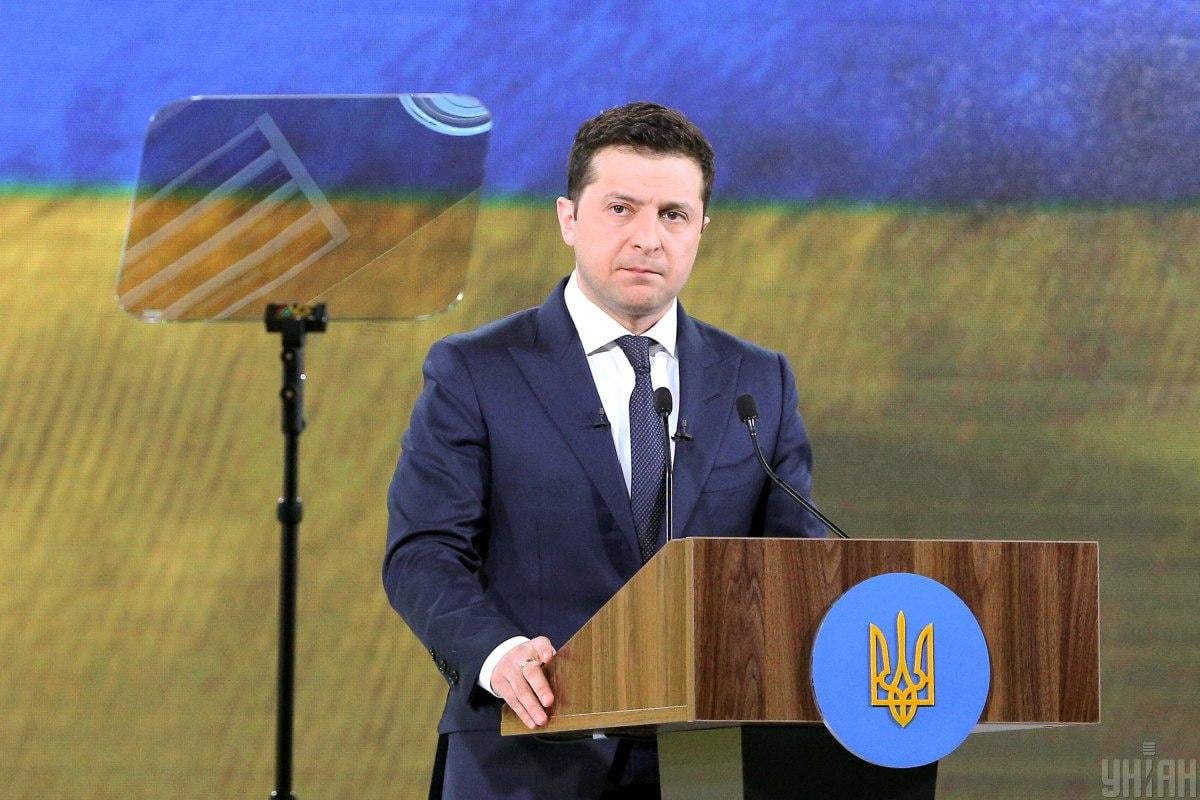
Ukrainian President Volodymyr Zelensky has said there is a persistent threat on Ukraine's borders.
He announced this in an interview for The Financial Times.
Zelensky welcomed the partial troop withdrawal, describing the de-escalation as a "small victory" for Kyiv and its allies. It was, he said, a "step away from the emotional state, towards some pragmatic solution that we would expect here for the Donbas area."
But he cautioned the situation remained dangerous.
"There is a persistent threat, of course, because we are having a war, especially in the Donbas area, and the Russian army, we all know it, is a very powerful force. So we have it continuously at our borders. And this particular case is a case of psychological pressure. We are ready here for some unpleasant surprises. We'll try to avoid them. Our military is very strong and we are prepared to deter any kind of threat of aggression," Zelensky said.
Read alsoZelensky's chief of staff comments on Russian forces' withdrawal newsRussian troops amassing along Ukraine's borders
- On March 30, 2021, Commander-in-Chief of the Armed Forces of Ukraine, Colonel-General Ruslan Khomchak said Russia had deployed 28 battalion tactical groups along the state border of Ukraine and in the temporarily occupied territories. It is also said to be planning to bring up to 25 battalion tactical groups under the guise of preparing for military drills. Such actions pose a threat to Ukraine's military security.
- According to the Armed Forces of Ukraine, enemy troops are reinforcing their advanced units with reconnaissance teams and sniper pairs, involving Russian army instructors in personnel training. Russia-led forces' artillery units are reportedly on full alert in certain districts, including villages and towns in occupied Ukrainian territory.
- On March 31, 2021, The New York Times reported Russia was pulling 4,000 troops to the border with Ukraine.
- Footage was shared on the Internet, showing a train with Russian military hardware en route along the Kerch Strait bridge to occupied Crimea.
- The U.S. European Command raised its alert status to the highest level after fighting had resumed between Russia-led forces and Ukrainian troops in Donetsk region.
- The U.S. Department of Defense said it was "aware of Russian troop movements" on Ukraine's borders and was concerned about recent escalations of Russian aggression in eastern Ukraine.
- The United States, finding reports of Russian military movements on Ukraine's border credible, asked Moscow to explain the "provocations" and is ready to engage on the situation.
- Ukrainian President Volodymyr Zelensky said Moscow was trying to put pressure on Kyiv by amassing its military forces along the Russian-Ukrainian border.
- On April 8, 2021, Khomchak assured the situation was under control, and the Ukrainian military was ready to respond to the escalation both in the temporarily occupied territory of Luhansk and Donetsk regions and along the entire Ukrainian-Russian border.
- On April 22, 2021, Russian Defense Minister Sergei Shoigu said his country would begin the withdrawal of troops, which had taken part in military exercises in occupied Crimea and near the borders of Ukraine, to their permanent bases in the Southern and Western Military Districts.

